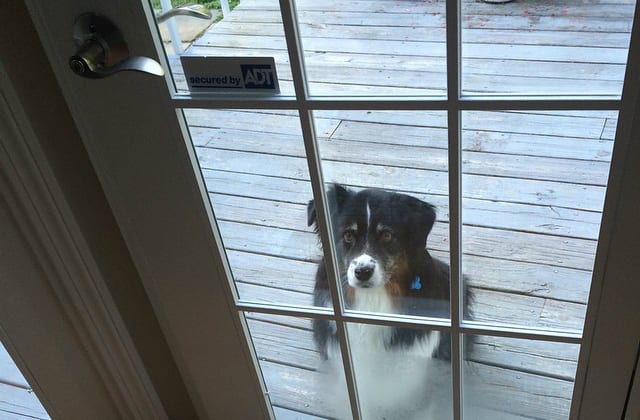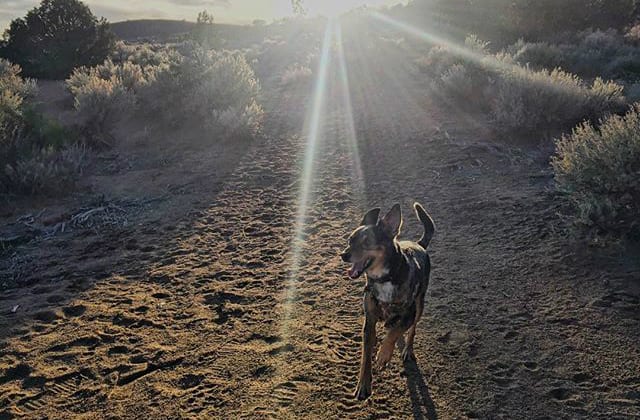Like many animal lovers, I spent countless hours as a child watching the heartwarming tearjerker that is “Homeward Bound: The Incredible Journey.” If you haven’t yet seen the film, it tells the remarkable story of two dogs and a cat who make their way through the American wilderness in search of their owners. While the idea of three pets trekking across the country might seem a tad far-fetched, it is not all too unusual.


While “Homeward Bound” was allegedly based on a true survival story, there have been several real-life stories just like it that have left us humans and dog owners baffled—Bucky the Labrador who traveled 500 miles back to South Carolina after his owner was forced to relocate him, Hank the shepherd who walked 11 miles to return to his former foster mom, and Georgia May who went missing during a hike and came through her doggy door 9 days and 35 miles later, just to name a few.


For someone like me who somehow still manages to get lost even when using a GPS, these dogs’ ability to navigate their surroundings is astonishing. With no map and no means of verbal communication, there must be something else to help guide them. So how do they do it? Our present knowledge of animal behavior is still not extensive enough to give one, concrete explanation for this incredible homing instinct. But there are a few theories…


Dogs first and foremost have an incredible sense of smell; according to NOVA, it is anywhere from 10,000 to 100,000 times more acute than our own. This superior genetic trait can take the dog a long way.
[bp_related_article]
Bonnie Beaver, the executive director of the American College of Veterinary Behaviorists and a professor at Texas A&M University, told TIME Magazine, “An eleven-mile distance is actually not terribly long for a dog…If the dog had walked both from and back to his home he’d be following his own scent trail.” In other words, if dogs wander off relatively close to home, they may be able to follow their own smell back to their doorstep.


Apart from picking up on their own scent, dogs are also capable of tracking the scent of their owners if the conditions are right. They may even base their navigation off of a variety of other familiar scents in areas they have previously explored, creating somewhat of a scent map for themselves. Jeffrey Kluger, a reporter for TIME, further described this:
“Dogs extend their scent range by moving among overlapping circles of familiar scents—much the way cell phone coverage relies on interconnected footprints from different cell towers. A dog that wanders out of its own immediate range might pick up the scent of, say, a familiar dog in the next circle. That might point it to a circle that contains a familiar person or tree or restaurant trash can, and so on.”
But what about the cases of extremely long distance travel or circumstances where the dog was transported by car or other means? This may have something to do with magnetoreception—the ability to perceive direction, altitude, or location based on a magnetic field.


A two-year study published in the journal Frontiers in Zoology recently discovered that dogs, in response to natural magnetic field variations, tend to go to the bathroom and/or mark their territory while facing north or south. Zoologist Hynek Burda who led the study told National Geographic, “To many dog owners who know about the good navigation abilities of their protégés, the findings might not come as a surprise, but rather as an explanation for the ‘supernatural’ abilities.” The thoroughness of Burda and his team’s research suggests that dogs have some awareness of Earth’s magnetism. Whether or not they are conscious enough of this to use it as a navigation system, however, is still up for debate.


The only other explanation we have found is based on the human-animal bond alone. Some suggest that, if the relationship between a dog and his or her owner is strong enough, the dog may be able to home in on it. Devoid of all sensory clues, they may actually find their way home based on some kind of telepathic connection or sixth sense that draws them to their owner. Is this psychic phenomena, sheer determination, or pure coincidence? You be the judge.


It is clear that a homing instinct does exist in dogs in some capacity or another, but many animal psychologists stress that it is often highly exaggerated and fantasized. For this reason, you definitely shouldn’t rely on it to bring your dog home if they get lost. The extraordinary success stories mentioned here are rare in a world where numerous lost dogs don’t make news coverage. So even if your dog has some incredible secret internal compass, always be sure to look after them!
Sources: TIME Magazine, National Geographic, PBS, Parapsychological Association, NY Daily News
Featured image via @dingoaday Instagram






